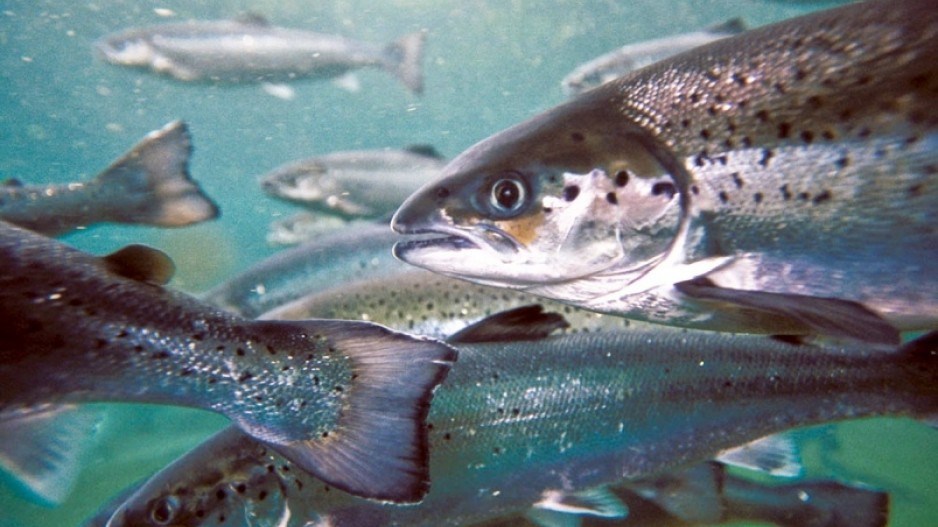There are a number of parasites and diseases that can transfer from farmed to wild salmon, with potentially fatal consequences, but the IHN virus appears not to be one of them, according to a study released this week.
Scientists with Fisheries and Oceans Canada (DFO) released the findings of a peer-reviewed study December 20 that concludes that there are “minimal risks” of a virus called Infectious Hematopoietic Necrosis Virus (IHNV) from salmon farms posing a risk to Fraser River sockeye.
It is the first of a series of studies being conducted under the Aquaculture Science Environmental Risk Assessment Initiative that is examining the potential risks of pathogens transferring from open-net salmon farms to wild salmon.
That initiative is one of two underway that are studying such risks. The other is the Strategic Salmon Health Initiative, in partnership with DFO, Genome BC and the Pacific Salmon Foundation.
The latter also published the first of a series of studies in February 2017. That study found a link between the Piscine orthoreovirus (PRV) and a disease in farmed salmon called heart and skeletal muscle inflammation (HSMI).
Although the study did not find a conclusive causal link between the virus and the disease, it did conclude there was a strong correlation between the two.
Alexandra Morton, an independent researcher, also was part of a recently published a study linking PRV and HSMI.
That study, published in December 2017, suggests PRV is transferring from farmed to wild salmon “may pose a risk of reduced fitness in wild salmon impacting their survival and reproduction.”
The most recent DFO study on IHN virus focused on salmon farms in the Discovery Islands. The virus is endemic to wild salmon, and can be passed to fish farms, where outbreaks can occur. The fear is that the virus could then pass back to wild salmon during outbreaks in fish farms.
Since the virus is not endemic to Atlantic salmon, they would have no natural immunity to it. Atlantic salmon infected by the virus can develop acute IHN disease and shed “enormous quantities” of the virus, the recent DFO study concludes.
However, the virus quickly dies when exposed to sunlight and organisms. Farmed salmon are also vaccinated to give them immunity to the virus.
“The report concludes that there are minimal risks to the wild Fraser River sockeye salmon populations due to the transfer of IHNV from Atlantic salmon farms in the Discovery Islands,” a DFO news release states.




